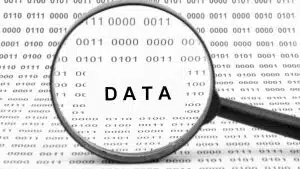Is ChatGPT Safe?
ChatGPT seems to be coming up in almost every conversation I’m having these days. There are so many ingenious ways you can use it from asking the tool to write blogs for you, to brainstorming side-hustles, to creating marketing ideas for your business, to writing code. The list of possibilities seems endless. A few people I know have even asked ChatGPT to write their resume, compose RFP’s and write business contracts for them on their behalf. Such a great way to use this new tool, right?
But is it?
ChatGPT is a public data set

In the age of identity theft we are all well aware by now that we need to keep our personal information secure when online as much as possible. Anyone who works in the cybersecurity community cannot stress the importance of this enough. Mistakenly go to the wrong website, or click on the wrong email, and your financial information or your incredibly valuable client data could be stolen in a heartbeat. And with the increasing prevalence of cyberattacks and data breaches, it is crucial to be mindful of the private information we’re sharing on the internet, especially on public platforms such as ChatGPT. Let’s go over that again. ChatGPT is a public forum.
While ChatGPT is an impressive language model or form of artificial intelligence capable of processing and generating vast amounts of data, it is important to keep in mind that it is a public data set, meaning that any information entered into it by its users can then become accessible to literally anyone with internet access.
Keeping your PII secure when using ChatGPT
One of the most common types of personal information that people may unwittingly share on ChatGPT is personally identifying information (PII). PII includes data such as full name, address, phone number, email address, date of birth (DOB) and social security number (SSN), among others. This type of information can be used by cyber criminals for identity theft and other fraudulent activities. Therefore, it is essential to avoid entering any PII into ChatGPT or any other public platform, regardless of the purpose.
Keeping your business information secure when using ChatGPT

In addition, it is equally important to avoid entering any proprietary company information into ChatGPT. Proprietary information includes trade secrets, confidential business information, and any other data that gives a company a competitive advantage. Entering this type of information into ChatGPT exposes it to potential theft and misuse by competitors, hackers, and other cybercriminals. As a result, employees and organizations should take necessary precautions to safeguard proprietary information and only share it on secured internal networks and systems.
A great tool when used correctly
While ChatGPT is a powerful tool that offers great potential, and many benefits, it is essential to be cautious and mindful of the data shared on the platform. Never enter any PII or proprietary company data into ChatGPT just like you wouldn’t do on any other public platform to avoid the risks of identity theft, fraud, and cyberattacks.
So the next time you sit down with that ChatGPT prompt pulled up on your computer screen and think about what command to ask of it next, remember whatever data you’re about to provide to it in order to gain the result you’d like it to generate, imagine it, if you need to, as if you’re essentially writing a page in a very large, very public, very big book – in a very public space. And you never know when a person might one day turn to that page and for what purpose.
Written by Kelly Weist (not ChatGPT)

As Vice President of Marketing for V2 Systems, Inc., Kelly Weist is responsible for making sure the people and business owners of Northern Virginia, Maryland and DC come to know how V2 Systems can help them solve their technology challenges so they can focus on their business goals.
Since 1995, Manassas Park, VA-based V2 Systems has employed local systems administrators, network engineers, security consultants, help desk technicians and partnering companies to meet a wide range of clients’ IT needs, from research, to implementation, to maintenance.
Concentrate on your VISION…We’ll handle the TECHNOLOGY!
